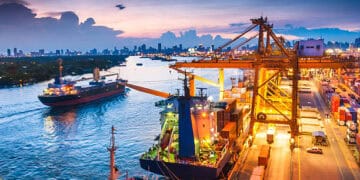Despite multiple rounds of sanctions imposed on Russia, European countries continue to import significant quantities of “critical” raw materials, contributing billions of euros to Russian state enterprises and oligarch-owned businesses. Investigate Europe analysis reveals that while sanctions have targeted sectors like oil, coal, steel, and timber, they have left untouched the trade in these critical minerals.
Ongoing Imports of Critical Raw Materials
- Since Russia’s invasion of Ukraine in February 2022, the European Union has implemented 11 sanction packages, but the flow of 34 EU-designated “critical” raw materials from Russia to Europe has remained largely uninterrupted.
- European companies, including aerospace giant Airbus, have continued to purchase critical raw materials like titanium, nickel, and others from firms closely associated with the Kremlin.
Significant Trade Figures
- Between March 2022 and July 2023, Europe imported €13.7 billion worth of critical raw materials from Russia, including €1.2 billion of nickel in the first seven months of 2023.
- Up to 90 percent of certain types of nickel used in Europe is estimated to come from Russian suppliers.
Complex Factors at Play
- The EU’s exemption of critical raw materials from sanctions is driven by its need for these materials to achieve climate neutrality by 2050 and support industries such as electronics, solar panels, electric cars, aerospace, and defense.
- Europe’s reliance on Russian critical raw materials, combined with global demand challenges, makes implementing a ban on imports challenging.
Challenges in Replacing Russian Suppliers
- Finding alternative suppliers with similar quality and pricing is difficult, and abrupt tariffs or severed ties could lead to global price surges that harm European buyers.
- India, Iran, and China might intensify their purchases, further straining global supplies of critical raw materials.
European Commission’s Efforts
- The European Commission has proposed the Critical Raw Materials Act (CRMA) to reduce the EU’s dependency on third countries for these materials.
- German MEP Hildegard Bentele emphasizes the need for immediate action to support European companies in reducing and replacing their critical raw material deliveries from Russia.
While sanctions have targeted various sectors and goods, the issue of critical raw materials remains a complex challenge for the European Union, given its reliance on these resources and the global demand dynamics at play.
Your go-to for supply chain report news updates: The Supply Chain Report. For international trade tools, see ADAMftd.com.
#CriticalRawMaterials #RussiaSanctions #EUImports #RawMaterialTrade #TitaniumNickel #AerospaceIndustry #EuropeanUnion #ClimateNeutrality #ElectricCars #SolarPanels #Aerospace #CriticalRawMaterialsAct #AlternativeSuppliers #GlobalSupplyChain #GeopoliticalTrade #RussiaEuropeTrade #SupplyChainChallenges #HildegardBentele #EuropeanCommission #RawMaterialDependence #EUClimateGoals #EnergyTransition #SustainableIndustry















